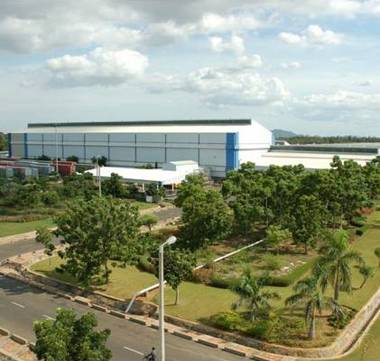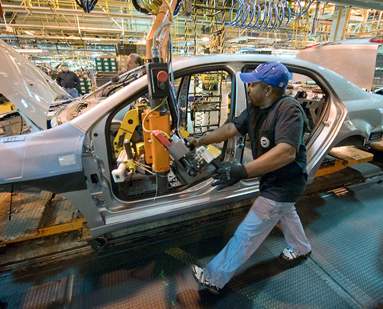 This week the Ford Motor Company announced impressive results in efforts to cut waste produced in its factories worldwide. Since 2007, the car company has slashed in half its waste that would otherwise ship to landfills in North America and reduced by 44 percent its global waste output — a total of 100 million pounds.
This week the Ford Motor Company announced impressive results in efforts to cut waste produced in its factories worldwide. Since 2007, the car company has slashed in half its waste that would otherwise ship to landfills in North America and reduced by 44 percent its global waste output — a total of 100 million pounds.
Expanding on the success, Ford plans to further reduce the amount of waste it sends to landfills by 10% per vehicle by the end of the year. If successful, that means the company would generate about 20 pounds of waste per vehicle on a global basis – roughly the weight of one tire.
In the last five years, on a per-vehicle basis, global waste to landfills decreased by 39 percent – from 37 pounds to just under 23 pounds. In North America, the amount of waste generated per vehicle has been cut even further – by 47 percent.
“When we paint a vehicle, not all the paint ends up on the vehicle,” said Lisa Hansen, manager, Technical Services, EQO. “We use a water wash scrubber system to capture and collect the excess paint solids so they are not released into the environment.”
The reprocessed paint solids are then dewatered to increase their energy value and sent to the local power plant. The project is being replicated at several other Ford assembly plants.
Another example of how Ford keeps waste out of landfills can be found at its Michigan Proving Grounds (MPG) in Romeo, Mich. Earlier this year, Ford installed its first solar-powered compactor at the site. The nearly 4,000-acre self-contained site previously collected trash in open-top boxes and then disposed of the trash in a landfill.
 MPG and its waste management partner came up with a new combination of recycling measures and solar-powered technology to compact the trash which is then sent to a waste-to-energy facility where it is converted into power. The compaction reduces the number of shipments and thus the fuel consumed for its transportation. Coupled with previous efforts to recycle all of the site’s cardboard, paper, wood and plastic, the plant has achieved a zero-waste landfill stream.
MPG and its waste management partner came up with a new combination of recycling measures and solar-powered technology to compact the trash which is then sent to a waste-to-energy facility where it is converted into power. The compaction reduces the number of shipments and thus the fuel consumed for its transportation. Coupled with previous efforts to recycle all of the site’s cardboard, paper, wood and plastic, the plant has achieved a zero-waste landfill stream.
In December, Ford announced plans to reduce by 30 percent the amount of water it uses in the manufacture of each vehicle by 2015, compared with the amount used per vehicle in 2009.
During the week leading up to Earth Day, the company detailed how it is working on numerous new sustainable materials for possible use in its vehicles, including corn, sugar beets and cane, coconuts and even shredded money.



















